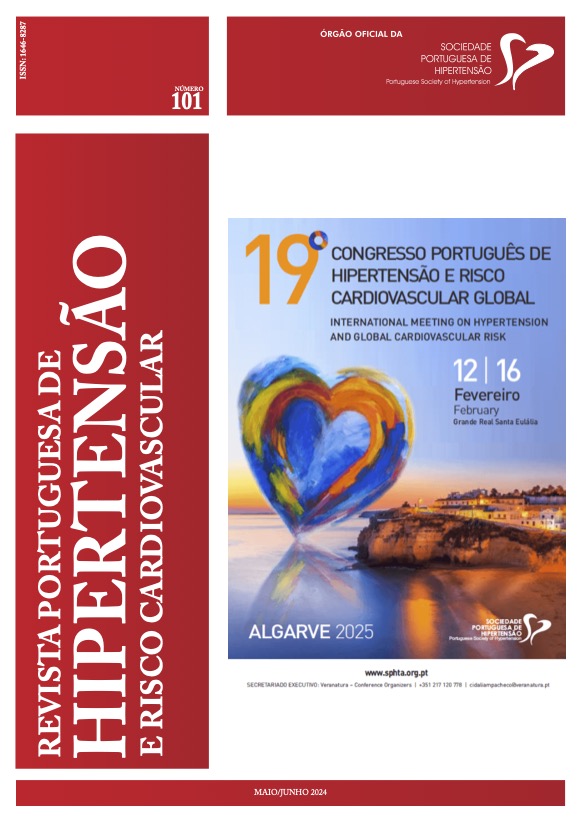DIAGNOSTIC APPROACH TO ARTERIAL HYPERTENSION OF SUSPECTED SECONDARY CAUSE IN PRIMARY HEALTH CARE - HYPERTENSION OF RENAL CAUSE
DOI:
https://doi.org/10.58043/rphrc.129Keywords:
secondary arterial hypertension, renovascular hypertension, renal parenchymal hypertension, primary health careAbstract
Renal pathology is one of the leading causes of secondary arterial hypertension. Hypertension of a renal cause can originate in the renal parenchyma or the renal artery and is called renal parenchymal hypertension or renovascular hypertension, respectively. The presence of hypertension is common in kidney diseases, being a critical prognostic factor, so its diagnosis, treatment and adequate guidance are essential. The role of General and Family Medicine in the initial assessment of patients with hypertension of a renal cause and the management of the disease is fundamental, namely, in the implementation of the correct treatment, as well as in the timely referral to the specialized consultation in the hospital environment, when necessary.Downloads
References
Richard JJ, Feehally J, Floege J, Tonelli M. Comprehensive Clinical Nephrology. Sixth edition. 2018.
Ettehad D, Emdin CA, Kiran A, Anderson SG, Callender T, Emberson J, Chalmers J, Rodgers A, Rahimi K. Blood pressure lowering for prevention of cardiovascular disease and death: a systematic review and meta-analysis. Lancet. 2016; 387:957–967.
Thomopoulos C, Parati G, Zanchetti A. Effects of blood pressure lowering on outcome incidence in hypertension. 1. Overview, meta-analyses, and meta-regression analyses of randomized trials. J Hypertens 2014; 32:2285–2295.
KDIGO 2021 Clinical Practice Guideline for the Management of Blood Pressure in Chronic Kidney Disease.
Williams B, Mancia G, Spiering W, Rosei EA, Azizi M, Burnier M, et al. 2018 ESC/ESH Guidelines for the management of arterial hypertension. European Heart Journal. 2018; 39, 3021–3104.
Garovic VD, Stephen C. Renovascular Hypertensison and Ischemic Nephropathy. Circulation. 2015; 112:1362- 1374.
Chonchol M, Linas S. Diagnosis and Management of Ischemic Nephropathy. Clinical Journal of American Society of Nephrology. 2006, 1 (2) 172-181.
Dworkin LD, Cooper CJ. Renal Artery Stenosis. The New England Journal of Medicine. 2009; 361:1972-1978.
The ASTRAL Investigators. Revascularization versus Medical Therapy for Renal-Artery Stenosis. The New England Journal of Medicine. 2009; 361:1953-1962.
Cooper CJ, Murphy TP, Cutlip DE, Jamerson K, Henrich W, Reid DM, et al. Stenting and medical therapy for atherosclerotic renal-artery stenosis. N Engl J Med. 2014; 2;370(1):13-22.
Chrysochou C, Kalra PA. Current management of atherosclerotic renovascular disease--what have we learned from ASTRAL? Nephron Clin Pract. 2010; 115(1):c73-81.
Downloads
Published
How to Cite
Issue
Section
License
Copyright (c) 2024 Rita Silva, António Mateus-Pinheiro, Ana Carreira, Vítor Coutinho-Teixeira, Rogério Ferreira

This work is licensed under a Creative Commons Attribution 4.0 International License.




